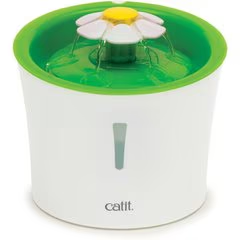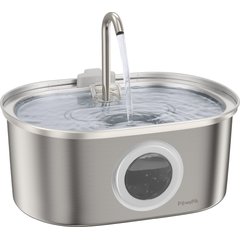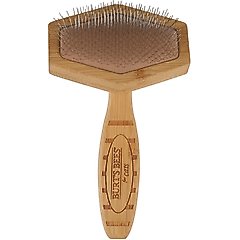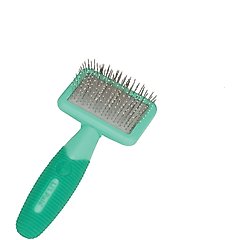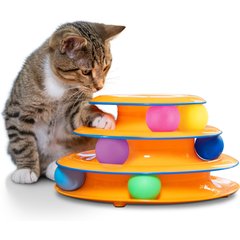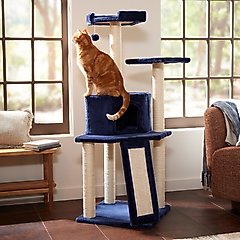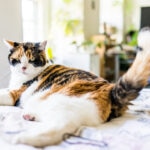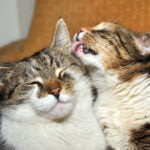Why Do Cats Lick Themselves?
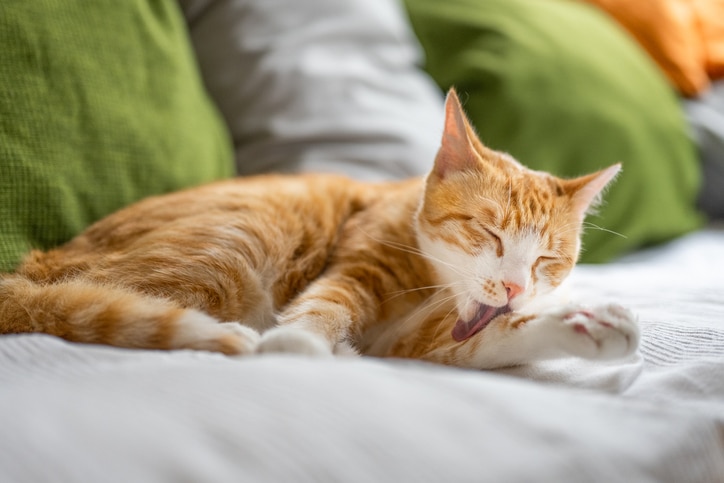
Photo by vm/iStock/Getty Images Plus
Cats have plenty of quirky daily habits, but one they really commit to is licking themselves. In fact, you might start to wonder what’s going on. So, why do cats lick themselves so much? Grooming is part of it, but it’s not the only reason.
Key Takeaways:
- It’s normal for cats to lick themselves as part of their grooming routine.
- Grooming, or licking, can take up several hours of a cat’s day.
- It’s also possible for cats to overgroom or undergroom, and either condition warrants a vet visit.
- Licking goes beyond grooming, though: It can be a way for cats to self-soothe, regulate their body temperature, or signal pain.
Why Do Cats Lick Themselves?
While it might look excessive, it’s completely normal for a cat’s grooming habits to take up several hours of their day. That said, all that licking can sometimes raise concerns, especially if it’s nonstop or focused on one area.
Grooming
Take a close look—like, really close—and you’ll see that your cat’s tongue is covered in tiny, backward-facing hooks called papillae, which give it that sandpaper feel. These little barbs help your cat remove loose fur, dirt, and debris.
With a tongue that efficient, you’d think a quick once-over would do the trick, but that’s not the case.
“Normal grooming can take up about half of a cat’s daily activity,” says Jessica Shepler, DVM, lead veterinarian and partner at CityVet in Highlands Ranch, Colorado.
Self-Soothing
Cats can get stressed for all sorts of reasons, from a recent move to the arrival of a new family member, or even an isolated event like the Fourth of July fireworks.
When cats are anxious, grooming can become more than just a cleaning routine—it’s a way for cats to relieve stress and find comfort. “Grooming releases endorphins in the brain, which feels good,” says Stephen Quandt, a certified cat behavior consultant at Feline Behavior Associates in New York City.
According to Dr. Shepler, “Stress-related licking often exceeds the normal 30% to 50% of daily grooming and may be focused on specific areas like the legs, belly, or tail.” Pet parents might notice the change when their cat wakes them up in the middle of the night with loud grooming or seems uninterested in playtime or meals because they’re too busy licking.
Temperature Regulation
Cats have sweat glands on their paw pads, chin, and lips, but they don’t rely on sweat alone to cool down. Grooming helps trigger evaporative cooling, Dr. Shepler explains.
So, if your cat’s licking more than usual on a warm day, it could be their way of trying to stay cool. Make sure they have a cooling bed to rest and access to fresh water to help prevent overheating, which can become an emergency.
Recommended Products
Pain or Irritation
Sometimes cats lick themselves a lot because they’re in pain or discomfort. For example, a cat with arthritis might lick their legs more than usual, or one with allergies or fleas might overgroom to soothe an itch.
Signs of pain in a cat may include:
- Hiding more than usual
- Changes in appetite
- Reluctance to jump or move
- Increased vocalization
- Other changes in behavior
Why Do Cats Lick Themselves To Keep Clean?
You could bathe your cat, but most don’t need regular baths like dogs do. Unlike a dog’s smooth tongue, a cat’s rough tongue is built for the job.
And when it comes to drying off, their fur tends to soak up water rather than repelling it, leaving them soggy, weighed down, and—understandably—not thrilled about getting wet in the first place.
Unless your cat has a specific reason for a bath, like getting unexpectedly dirty or dealing with a skin condition, it’s usually best to let them handle grooming on their own.
When Is Licking a Problem for Your Cat?
Overgrooming
Your cat’s excessive grooming can do more than take over their day—it can cause secondary infections and turn into a hard-to-break habit.
Signs of overgrooming include:
- Thinning fur or bald patches
- Persistent licking in one spot
- Frequent hairballs
- Red or irritated skin
- Broken-off or abnormally short fur
Undergrooming
Cats are usually great at keeping themselves clean, but sometimes, they stop grooming as much as they should. A sudden decline in grooming can point to stress, illness, or pain, Dr. Shepler says, and should always be discussed with your vet.
Senior cats with arthritis may find it hard to reach certain areas, and even if they can, aging can dull the tiny barbs on their tongues. Overweight cats often struggle to clean hard-to-reach areas too.
And when it comes to kittens, grooming is a learned behavior. If they’re separated from their mother too early, they might not learn how to do it properly.
Signs of undergrooming in cats may include:
- Oily or greasy fur
- A matted or tangled coat
- A generally messy or unkempt look
- A dirty bottom
If you spot these signs, your cat might need a little extra grooming help. Regular brushing (a slicker brush works well for most coat types) can remove loose hair, dirt, and tangles.
Recommended Products
Some felines may also be up for the occasional bath or a visit to a professional groomer. For a quick freshen-up without the hassle of a cat bath, you can try unscented, hypoallergenic grooming wipes like those from Earthbath to gently remove excess oils.
Recommended Product
How Can I Stop My Cat From Licking?
If your cat’s overgrooming, you may need help to get them to stop.
Quandt says that overgrooming can be caused by an underlying medical condition upwards of 70% of the time; that’s why it’s important to rule out medical causes before trying to redirect your cat’s behavior, he says.
Parasites, like fleas, are a common trigger for overgrooming. If your cat isn’t already on a year-round flea and tick preventive, talk to your vet about getting them started. Options like Revolution Plus for Cats offer broad protection against fleas, ticks, heartworms, ear mites, and other common parasites.
Recommended Product
Once your vet has ruled out any medical causes for the behavior, you can redirect your cat’s licking by:
- Reinforcing positive behaviors. When your cat chooses to do something other than licking, reward them with something they love, such as a cat treat, gentle petting, or praise.
- Keeping a consistent routine. Knowing what to expect each day can reduce stress.
- Providing enrichment. Boredom can trigger overgrooming, so play with your cat daily, rotate toys, set up a window perch, or add vertical climbing spaces.
Recommended Products
When Should You See a Vet?
If you notice a change in your cat’s grooming habits—whether they’re licking too much or not much at all—check in with your vet.
FAQs About Cat Licking
Q: Are cats happy when they groom themselves?
A: Sometimes! “Grooming can be a soothing and comforting activity for our cats most of the time,” Dr. Shepler says. But when licking becomes excessive, it could be a sign that something’s off.
Q: What does it mean when cats lick each other?
A: When cats lick each other, it’s called allogrooming, or social grooming, Quandt says. Cats tend to lick each other on the cheeks, forehead, and chin—places where scent glands release pheromones, the chemical signals used for communication, bonding, and marking territory.
This behavior strengthens bonds between cats and helps create a sense of group identity. Even wild cats do it, Dr. Shepler adds.
Q: What does it mean when a cat licks a human?
A: A cat licking a human can be an attempt at bonding, Dr. Shepler says.
Q: Why do cats lick themselves when you pet them?
A: “Our cats will often lick themselves after being petted to redistribute scent,” Dr. Shepler says. It’s their way of re-establishing their own smell. But sometimes, it can also be a sign of overstimulation, especially if you are petting a sensitive area. In that case, give them some space.


